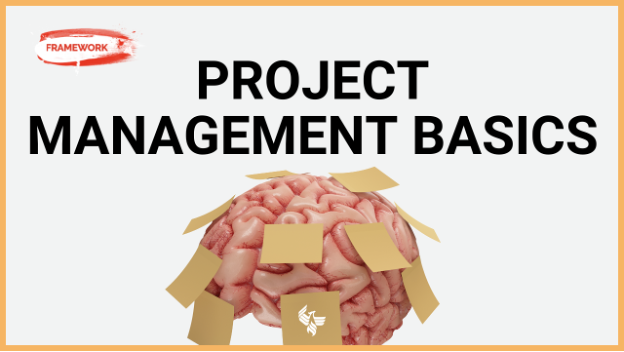What is project management?
This article was updated on August 5, 2024.

Written by Michael Feder

Reviewed by Kathryn Uhles, MIS, MSP, Dean, College of Business and IT

Are you someone who thrives under pressure when it comes to group projects? If your colleagues look to you for plans or strategies, there’s a good chance you have strong leadership skills and a natural aptitude for getting things done. Companies in the technology, construction or engineering sectors often seek talented people with these qualities for project management roles.
Project management responsibilites
At its core, project management is the art and practice of managing teams or specific tasks within a company. Professionals in this area often work within breakout groups created to accomplish a specific job. They might manage and motivate teams and ensure a project is seen through. Examples of one-time projects can include uses for a single grant at a nonprofit or how to put an empty building on a company's property to use. Specific activities might include:
- Tracking marketing projects and measuring their success
- Designing costs and timelines for the launch of a new project
- Analyzing the implications of change and developing solutions
- Collaborating with a variety of stakeholders to ensure that projects stay on track, within budget, and aligned with specified requirements and outcomes.
Types of project management
Top project management skills
Some of the most prominent hard skills necessary for managing projects include:
- Project planning and scheduling: In addition to understanding project management software, PM professionals must be able to create detailed project plans that include timelines, milestones and deliverables.
- Budget management: This involves ensuring projects are completed within the budget, which requires familiarity with cost estimation and some financial forecasting.
- Risk management: Potential risks associated with projects must be identified and mitigated which involves monitoring and controlling them throughout the project’s lifecycle.
- Quality management: PMs use industry-leading quality assurance (QA) practices to ensure project deliverables meet (or exceed) quality standards.
- Technical proficiency: Industry-specific knowledge and understanding, from tools and technologies to methodologies is a requirement.
Shepherding projects across the finish line requires more than technical skills. The right soft skills can often grease the wheels of a project and ensure things run smoothly. Common soft skills for project managers include:
- Leadership: PMs must be able to inspire and motivate their team members by providing clear direction and maintaining morale.
- Communication: Strong verbal and written communication allows for effective stakeholder engagement. Great PMs perform active listening and clearly convey complex details for projects.
- Problem-solving: Analytical thinking is a must for PMs, who need to creatively overcome obstacles and adapt to changes that stem from potential issues.
- Time management: PMs must balance multiple tasks and responsibilities and know which ones to prioritize and when.
- Negotiation: Even PMs need to negotiate within their organizations for resources, budgets and timelines with stakeholders. Managing interpersonal and intrapersonal conflict is important too.
Combining these hard and soft skills enables project managers to effectively lead and complete projects, meet their goals and contribute to organizational success.
Salaries in project management
According to the U.S. Bureau of Labor Statistics (BLS), project management specialists earned between $57,500 and $163,040, with a median wage of $98,580, as of May 2023. Between 2022 and 2032, BLS projected 6% growth in the number of open roles, or about 68,100 per year.
Salary ranges are not specific to students or graduates of University of Phoenix. Actual outcomes vary based on multiple factors, including prior work experience, geographic location and other factors specific to the individual. University of Phoenix does not guarantee employment, salary level or career advancement. BLS data is geographically based. Information for a specific state/city can be researched on the BLS website.
BLS Occupational Employment Projections, 2022-2032 is published by the U.S. Bureau of Labor Statistics. This data reflects BLS’ projections of national (not local) conditions. These data points are not specific to University of Phoenix students or graduates.
Education for careers in project management
University of Phoenix’ offers a Bachelor of Science in Business with a Project Management Certificate, as well as a stand-alone online Project Management Certificate.
Need help deciding which path is right for you? Reach out to an enrollment representative to learn more.
Interested to learn more? Watch this YouTube video about project management basics.

ABOUT THE AUTHOR
A graduate of Johns Hopkins University and its Writing Seminars program and winner of the Stephen A. Dixon Literary Prize, Michael Feder brings an eye for detail and a passion for research to every article he writes. His academic and professional background includes experience in marketing, content development, script writing and SEO. Today, he works as a multimedia specialist at University of Phoenix where he covers a variety of topics ranging from healthcare to IT.

ABOUT THE REVIEWER
Currently Dean of the College of Business and Information Technology, Kathryn Uhles has served University of Phoenix in a variety of roles since 2006. Prior to joining University of Phoenix, Kathryn taught fifth grade to underprivileged youth in Phoenix.
This article has been vetted by University of Phoenix's editorial advisory committee.
Read more about our editorial process.



Free Business Programs Guide
Make informed decisions with inside details about our business programs, the skills you’ll earn, the faculty who’ll teach you and more.
Thanks for requesting the Business Programs Guide
Download PDF now. Or access the link in our email.



